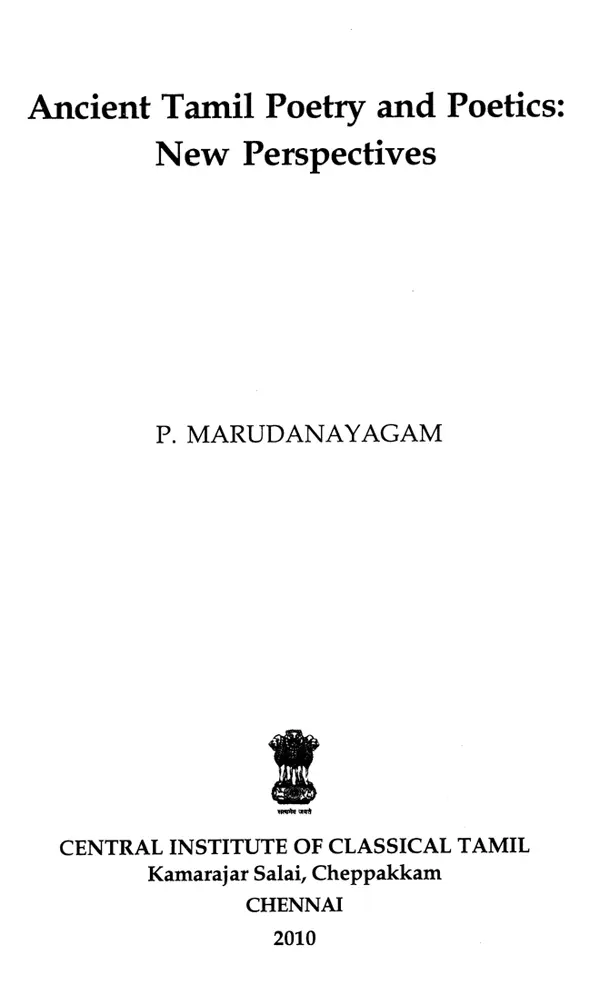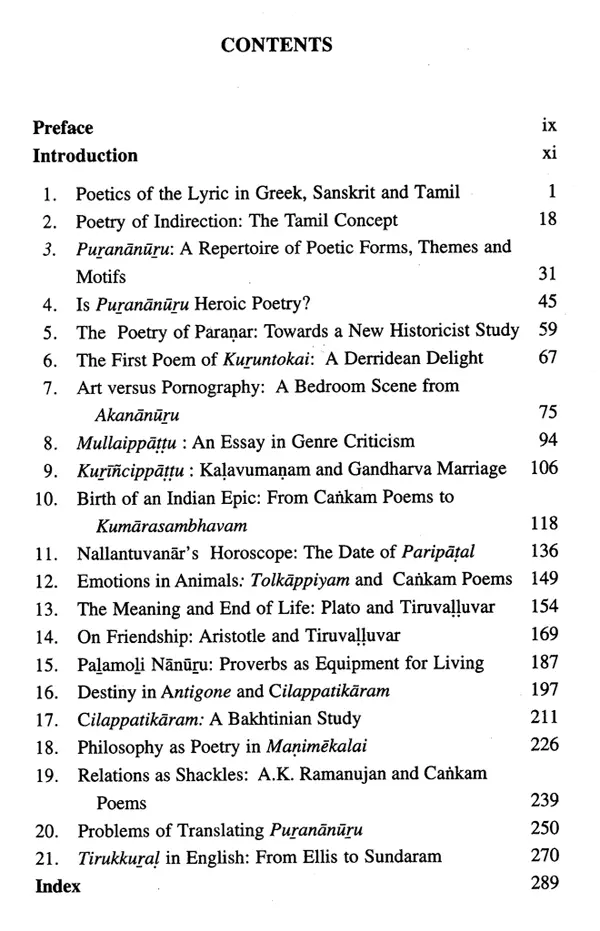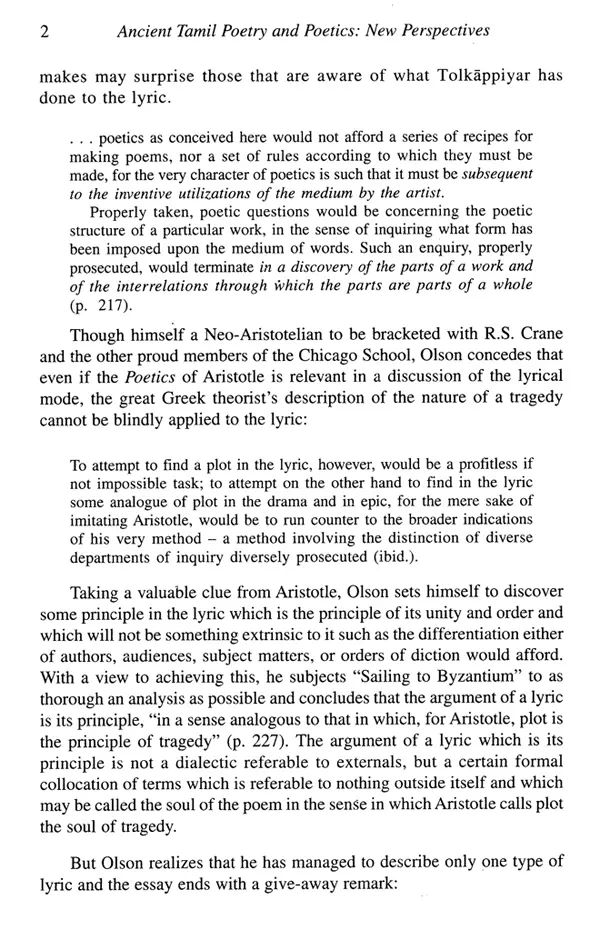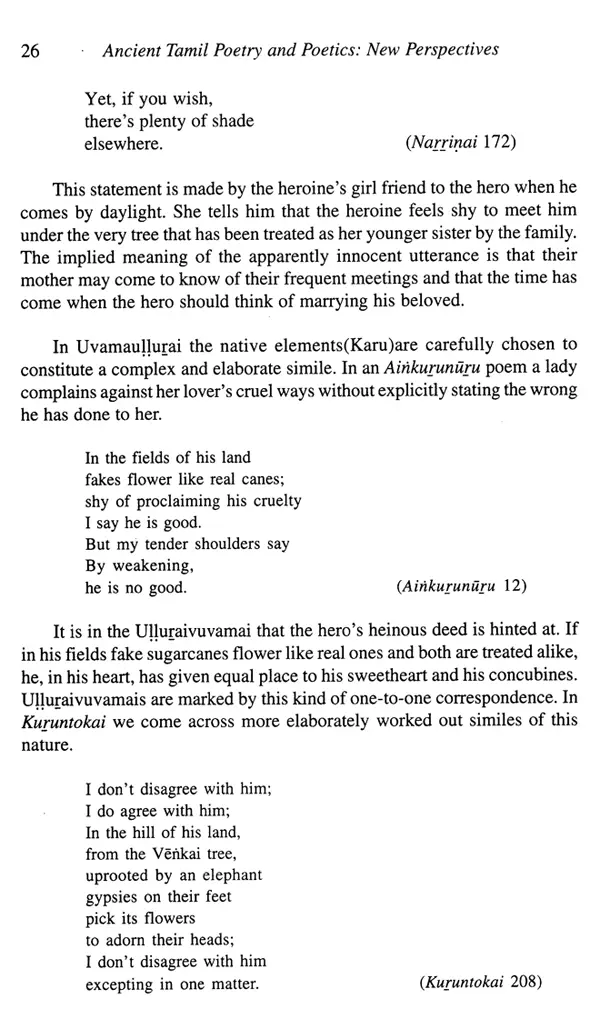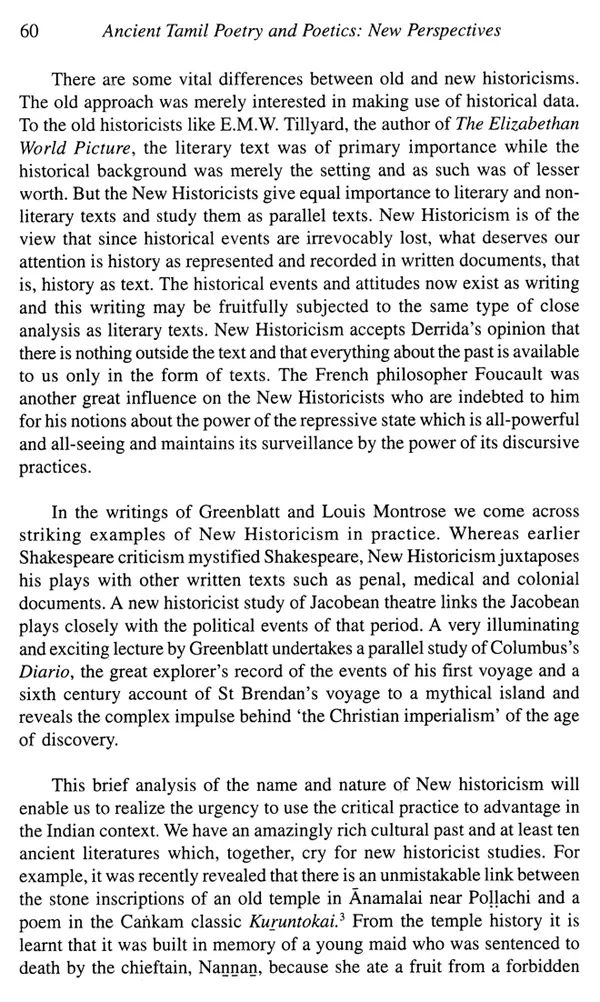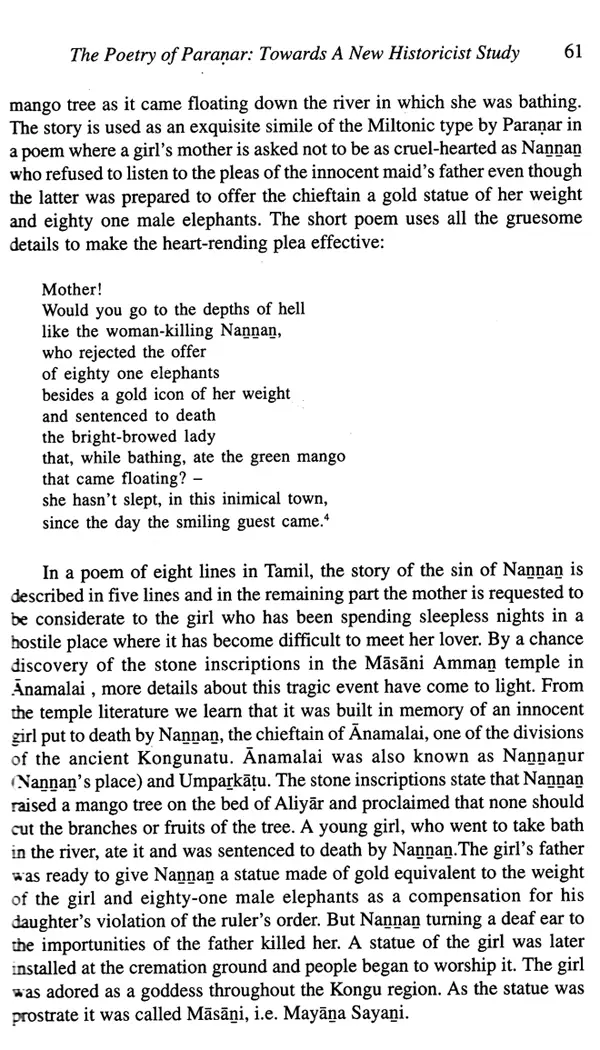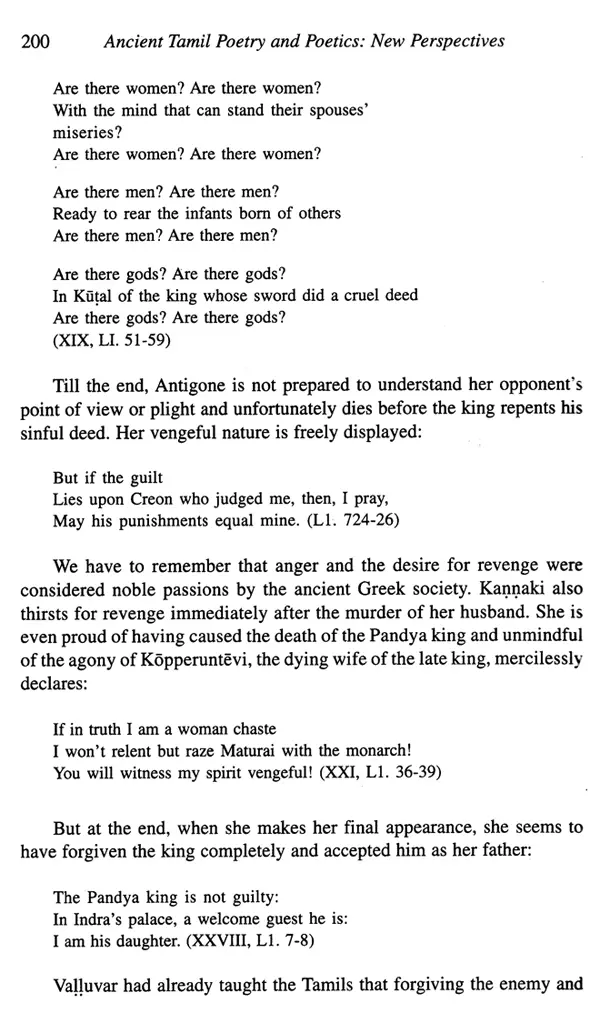
Ancient Tamil Poetry And Poetics: New Perspectives
Book Specification
| Item Code: | UAW498 |
| Author: | P. Marudanayagam |
| Publisher: | Central Institute of Classical Tamil, Chennai |
| Language: | English |
| Edition: | 2010 |
| ISBN: | 9788190800013 |
| Pages: | 298 |
| Cover: | HARDCOVER |
| Other Details | 9.50 X 6.00 inch |
| Weight | 610 gm |
Book Description
The Tamils may be justly proud of the fact that Tamil has won the status of a Classical language, the status it richly deserves and should have got long, long ago. The Central Institute of Classical Tamil (CICT), established in Chennai, has mapped out various plans including preparation of definitive editions of forty one Classical Tamil texts and translation of these works into English and other major European languages as well as into major Indian languages and writing of a historical grammar of Tamil. Language being the autobiography of a people, our objective is to preserve and safeguard the invaluable treasure of the literary compositions in our language. If only we could delve into our past and recover the riches and wealth of the mighty treasure trove of Classical Tamil poetry, we will be amply rewarded by its lofty poetry, the poetry that strengthens and purifies the holiness of heart's affection and enlarges our imagination. Apart from these, reading the ancient Tamil texts such as Tolkappiyam, Ettuttokai, Pattappattu, Tirukkural provides a foundation for scholarship for the present and in this sense provides enlightened education.
It is heartening to write this foreword to the series of publications to be brought out by CICT, which I am sure, will do full justice to the masterpieces in Tamil without compromising on the quality of production. The Cankam corpus being a repository of our glorious culture, it behoves our present and future generations to study them and to convey their message and the vision of life embodied in them to the public at large. Let me, therefore, commend the series to the enlightened beings the world over.
No apology may be required for bringing out a collection of essays examining ancient Tamil poetry and poetics from diverse contemporary perspectives. Now that Tamil has been declared a classical language by the Government of India, it behoves the native scholars of Tamil to convince the world that Tamil deserves the appellation that has elevated it to the level of Greek and Latin which the West has been unanimously cherishing as classical languages for a long time.
By 'classic' we mean a literary piece which has achieved a recognized position in literary history for its superior merits. Classical literature may refer to Greek and Roman literature or any literature that exhibits the qualities of classicism. When the word 'classical' is used to describe the characteristic features of a literary work it implies objectivity in the choice and handling of the theme, simplicity of style, clarity, restraint, order and formal structure. Praiseworthy books, according to Milton, "are not absolutely dead things, but do contain a potency of life in them to be as active as that soul whose progeny they are; nay, they do preserve as in a vial, the purest efficacy and extraction of that living intellect that bred them". Great literature deals not merely with some aspects of the human mind but with the total human psyche. In Coleridge's view, its great achievement is to bring about a "whole-souled activity in man" by appealing to the senses, the heart, the intellect and the spirit of the reader. Besides possessing these attributes, Cankam writings have been exerting their profound impact on several succeeding generations of Tamil poets.
How did the ancient Tamils conceive art? To them, art, especially poetry, is not a simple source of aesthetic delight, but as Tolstoy contends, "one of the conditions of human life", and, more importantly, "a means of union among men joining them together in the same feelings, and indispensable for the life and progress towards the well-being of individuals and of humanity,"
